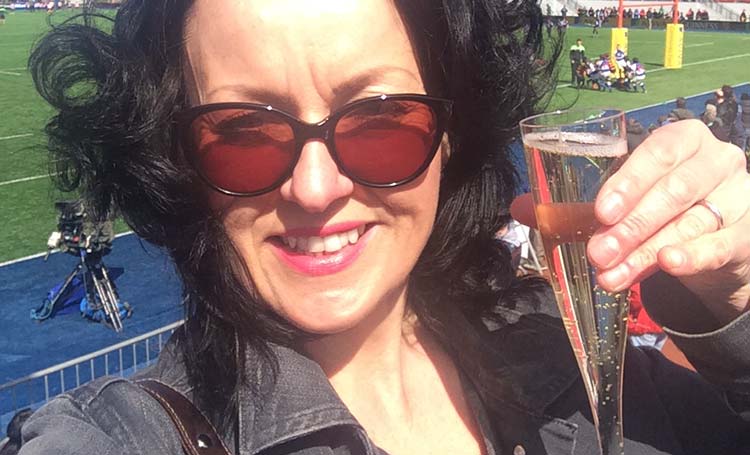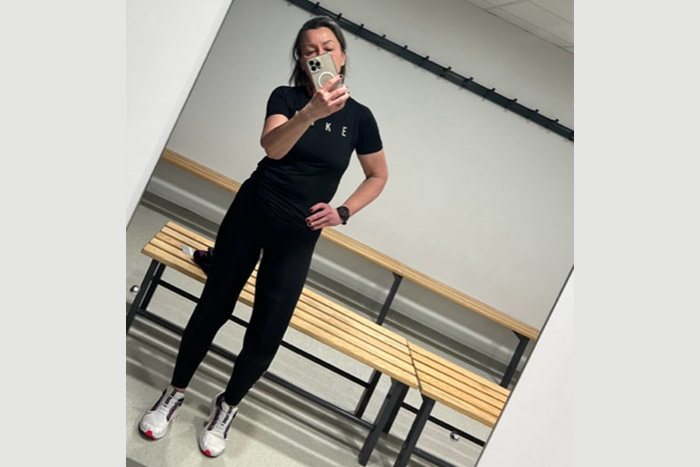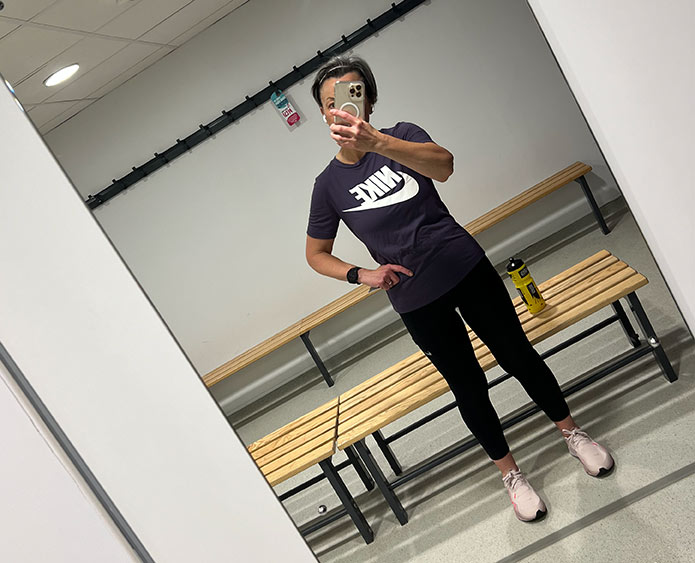Feeling Great at 60 – The Magic Word Nobody Talks About
The key reason for me starting this site is because, after years of wondering if it was possible, I now know that feeling great at 60 is definitely achievable, but exercising common sense is advised.
Losing weight is great, and knocking 5 years off by getting a cute haircut is fabulous but what we really want is to feel energised, empowered, and … happy, isn’t it?
What’s the point in making changes to our daily habits if we’re not feeling great by the time we reach 60 and beyond?
The secret to feeling great at 60 lies in balancing good health-boosting practices, namely regular and varied physical exercise, gut-healthy nutrition, hydration, minimising stress and getting good quality sleep.
Balance is everything
The key word in the last paragraph is balancing.
Too much of anything isn’t good, but the right amount of everything is golden!
You see, for too long I pushed myself as hard in the gym as I would have done in my 30s, which was on reflection not only ridiculous but also potentially harmful. It turned out that my 60 year old body needed more recovery time. Who knew?
So often in recent years I’ve been exhausted and confused; after a week of strenuous workouts together with healthy meals, why on earth was I feeling so awful? Typically I’d research different supplements to try, but all I needed was rest, which turned out to be a lot cheaper.
I’d also happily embark upon severe, restrictive diets in the hope that I’d lose weight quickly, which I often did only to find it piled back on just as quickly once I started eating ‘normally’ again. Faced with the fact that food is our primary source of fuel, I still feel pretty stupid about those episodes.
I urge you to not make the same mistakes, and if you are, please reconsider. But when I say ‘reconsider’, I don’t mean give up and head back to the wine and jumbo bag of crisps… This post will explain more.
Is 60 old for a woman?
When I Googled the question above I couldn’t find a definitive answer.
What I did find was lots of opinions from various corners of the world.
But when you consider that the life expectancy for a woman in the UK only a hundred years ago was a little over 59, being not only alive at 60 but also fit and well is a relatively new phenomenon.
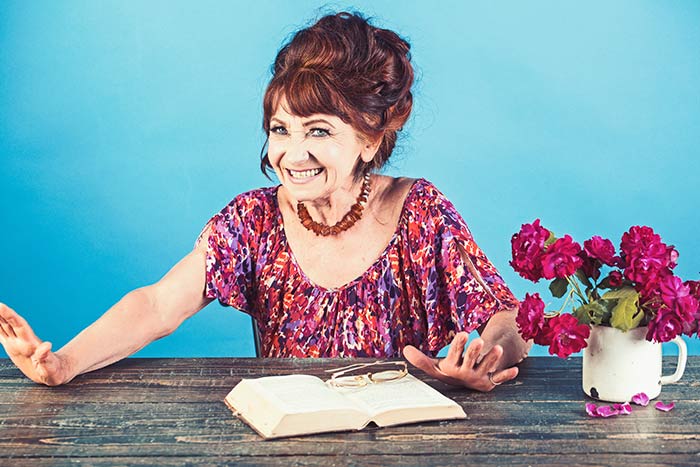
So… 60 probably is ‘old’ in terms of recent history, but go back a hundred years further and the age of 40 was as far as most people got.
There isn’t a wealth of information out there about how a hard exercise programme or a restrictive diet is going to affect a woman in her 60s, because there weren’t many of us around until a few decades ago. We are quite literally a new generation!
But we do know that the above good practices will help lessen the risk of many age-related conditions, so how do we embark upon them not only sensibly, but effectively?
The non-negotiable ‘big Three’
Of the list I’ve mentioned above, there are three that I will always do my absolute best to stick to:
- Gut-healthy foods – more on this in future posts but this link will help to explain why it’s so important
- Hydration – my daily goal is 2.5 litres of unadulterated water (tea and coffee don’t count)
- Good quality sleep – minimum 7 hours per night, more on that below.
I can get away with missing a workout, and getting a little bit more stressed than normally I would, but I try my absolute best not to mess with the ‘Big Three’.
If any of these are neglected then I know about it the next day. To be exact I’ll be able to get through my day but that’s not what I’m looking for – I want to feel frickin’ amazing. We are after all focusing on feeling great at 60, and so nothing else will do.
How many hours of sleep do 60 year olds need?
I aim for a minimum of seven hours a night.
I can get by on six, but any less than that and my day will be negatively affected.
Rest and recovery happens during sleep, which in turn lessens our chances of injury. I lose count of the number of people aged 50 and over who tell me they can’t exercise because they’re injured.
Good sleep has been an elusive companion of mine over the years, but I’m now a lot more clued up on what makes the difference between a restful night and one spent tossing and turning.
My Garmin watch synced with my iPhone tells me each morning if I’ve had a good night’s sleep or not, and it’s proven to be scarily accurate!
Here’s typically what my readings look like – I obviously manage to be stressed during my sleep… I’m still working on that 😉
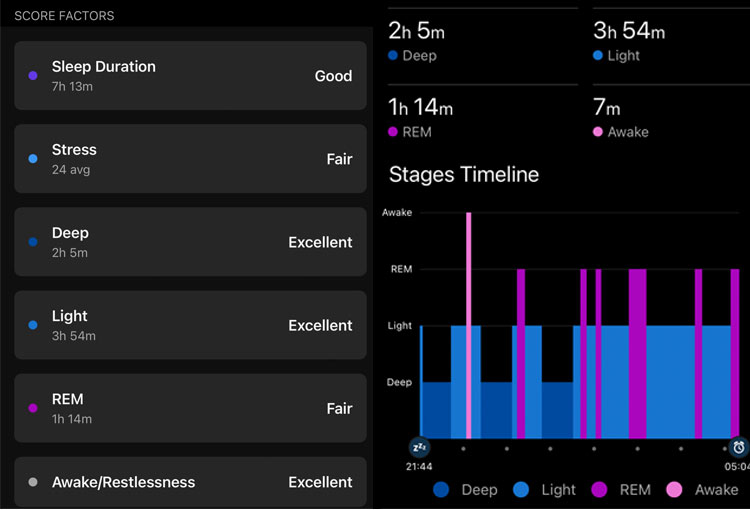
Of the three sleep stages, generally I get plenty of deep sleep, which supports memory, and cell regeneration, and also light sleep. REM sleep is often where I fall short, so that’s an ongoing challenge for me.
Reading for an hour before I turn my light off is helpful, as is avoiding alcohol completely together with a ‘zero caffeine after midday‘ policy.
I can’t stress how important working on the quality of your sleep is. If you take away nothing else from this post, please think about how yours could be improved if, like me, you’ve struggled to sleep well over the years.
If I have to sacrifice an early morning gym session to get more shut-eye and I’ve been feeling off-colour, then I’ll do it without hesitation. Working out when you’re already tired makes no sense, there’s always tomorrow.
What changes when you turn 60?
I’m going to be honest, I don’t feel as if much has changed for me now that I’ve lived by my altered habits for three years.
Giving up alcohol has been a huge, I had no idea how badly it was affecting my brain chemistry as I got older. For up to three days after drinking as little as three glasses of wine in an evening I would become severely depressed. I rarely touch it now because Debs the Sobbing Mess isn’t fun to be around.
Not only discovering what makes the difference to my life quality but accepting and embracing it as part of who I now am has been the biggest bonus.
My fifties were littered with half-ass attempts to get through the menopause, all the while complaining about pretty much everything and refusing to address the root causes of why I felt so bad.
But so far my sixties look like a much bigger improvement than I could have hoped for.
At what age does physical decline begin?
I firmly believe physical decline begins the moment you stop trying to take care of yourself.
Each aspect of our bodies starts to decline at different points in our lives, and we can either accept it, or we can do something about it.
Personally I don’t want to be like the old ladies I recently saw on the orthopaedic hospital ward when my Mum broke her hip and needed surgery. Working on core and leg strength together with good balance plays a key role in helping to prevent falls in later life.
Of course, we can never completely eradicate the chances of injury or accident as we age, but let’s not kid ourselves that we are powerless to prevent the chances of it happening.
I wish you good health, good balance and an excellent night’s sleep! x


